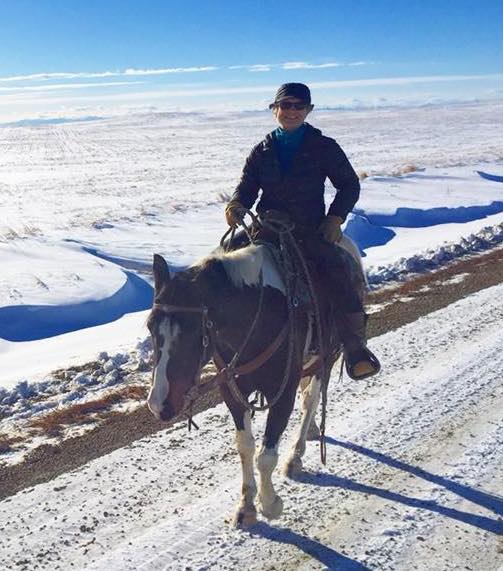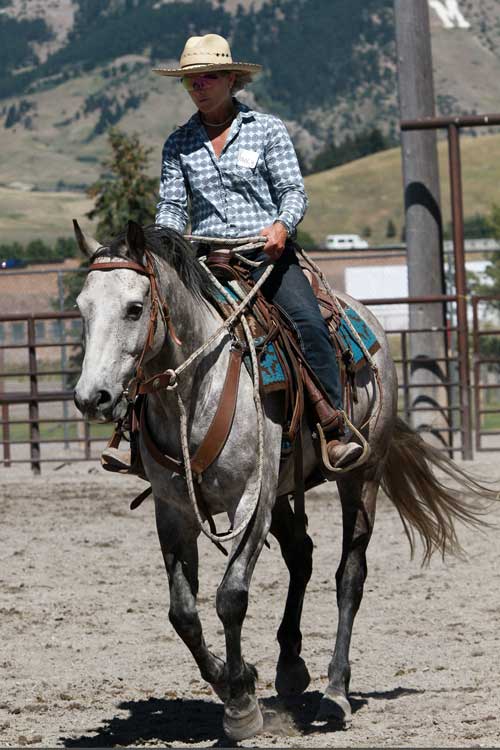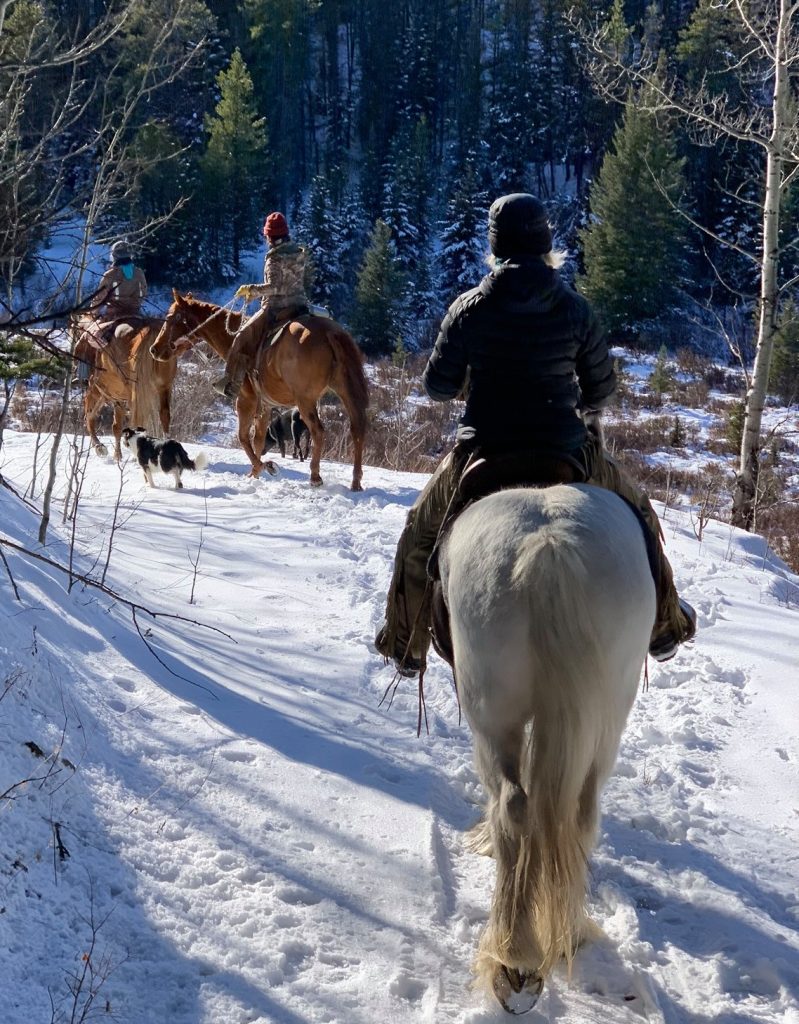
Nancy Lowery takes a brisk ride this winter in Canada
Editor’s Note: We hear this week from Nancy Lowery of Calgary, Alberta. Lowery has been blogging about her Leadership Learning through Horsemanship Experiences for more than a decade. A recent interview series by Lowery explored what Calgary leaders have learned through their relationships with horses.
Lowery writes:
A dozen or so years ago, I found a teacher who was saying exactly what I needed to hear. I became a devoted follower, listening, repeating, and memorizing his words and the actions those words supported. I inadvertently spent a few years perfecting mistakes. But that did not deter me. I corrected them and moved on. I continued. I improved and loved the changes I was seeing.
But when I was ready to learn more, this teacher deflected my new questions. Instead, the same basic principles were repeated. I convinced myself that I’d simply not asked good questions. I continued to apply myself and found ways to believe the wisdom in the words. I satisfied myself with thoughts like:
- His words were at the level of the chaos of the class

At a clinic several years ago
- New people necessitated that the information stick to a basic level.
- I understood that newer riders needed to be clear on the basics first before new information could be added. The individuals who didn’t return I judged as flunkies, those who didn’t quite get it.
This past year, I could not afford to fully participate in the annual clinic, so I sat on the sidelines and listened. I guess you could say I really listened.
I watched some people struggle with the basics while others demonstrated a good deal of competence. Little was rewarded or even acknowledged. The teacher had elevated himself to a point where his words, stories, and monologues were manufactured for the masses. It appeared as if he no longer cared if the words were reflected in and appropriate for the his students.
As an auditor, I asked a carefully-worded question. It was thoughtful and on-point. I was devastated when he turned away and began to answer an unrelated problem. Listening and being responsive applies to leadership, politics, and, in this case, horsemanship.

A winter’s ride in Alberta
Now I view those students who didn’t return in a completely different light. Perhaps they saw what I didn’t. There is religiosity in horsemanship circles, but I never thought I’d be one to fall into the ‘follower’ trap.
Over the past few months I’ve had conversations with different teachers. Each holds their own perspective, and all have offered their knowledge freely. Their willingness to share has opened up my path of learning. The past month of exploration has offered a completely new and different understanding of how to attain a soft feel. Without the trinity of behaviors: cues, body language, and then aids or hands, I will never attain a soft feel. You simply cannot have one without the others.
With a new instructor, I have been new and different work. In one month, I have learned more about myself and my horses than I have in the past 10 years.
I’d spent a decade focusing on the idea of a soft feel, a behavior that at first blush relates to the hands, the reins, the bit and the horse’s mouth, while the cues and body movement always just seemed to receive honorable mentions.
Meanwhile, I had been so focused on the tactic of a “soft feel” that I had not discerned between compliance and engagement. Without engagement, of course, one cannot find refinement. (The irony is not lost on me. I speak about compliance versus engagement in every leadership program I deliver.)
Another concept we always touch on is the power of failing. It is through failing, no matter how egregious, where we find learning.
Thank you for writing about your journey from questioning all you knew (or thought you knew) to expanding your knowledge…all to benefit your horse. It is so hard to acknowledge that the status quo isn’t working. This should help lots of folks who are feeling something ‘off’ with their current instructor/trainer/horse guru.
thanks for reading Julie – I’ve learned I do best when I am pushed outside of my comfort zone. It’s easy to become complacent, ergo the associated attitude, but learning what you need to change is hard work. Yes, my horses have been waiting for me to catch up!
“Learning what you need to change is hard work.” Yes it is, and Nancy , what you wrote rings true with me and how I would describe my attempts to learn from the self-proclaimed gurus with big followers. I finally realized they and their system of “teaching” required me to suspend my own intuition in order to follow their “ways” and of course that made the journey intolerable. So I quit…Finally, I found a few honest, skilled, experienced horsemen and women who shared the truth behind the art/science horsemanship instead of the “hyped” ideas with a big price tag While I got a late start, I have begun to see the ways that work now…questions answered!..It took decades too long and was wrought with numerous losses for me. I am thankful for your article and for NickerNews, Cayuse Communications and BHPS for leading the way our of the dark. Well written..thanks so much.